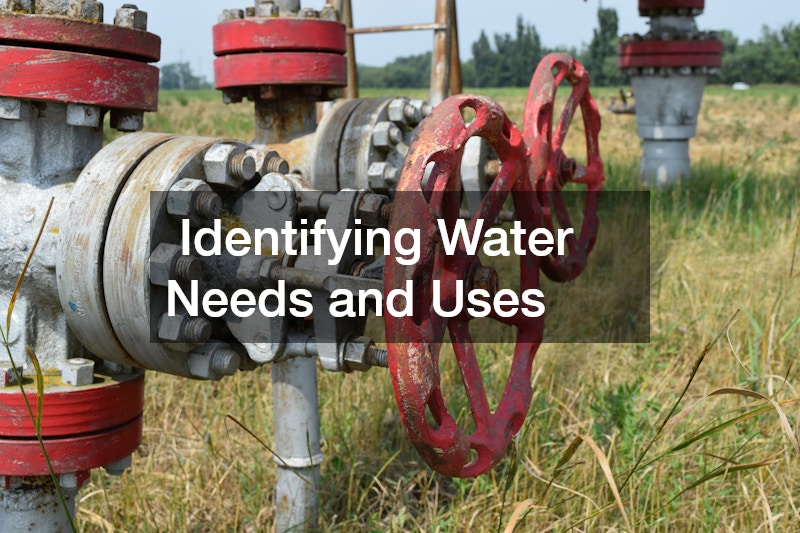Understanding the nuances of selecting a well drilling service can greatly impact the success of accessing groundwater for your property. This article explores the critical considerations and common queries property owners have when choosing a well drilling service. Choosing wisely can ensure a sustainable and reliable water supply for your home or business.
Researching the Company’s Reputation
Before selecting a well drilling service, it’s crucial to assess the company’s reputation. Reading reviews and testimonials can provide insight into the experiences of previous clients. Additionally, asking for references enables direct feedback on the reliability and performance of the service provider.
Company reputation can significantly influence the quality of service received. A reputable company often has a history of satisfied customers and successful projects. Research can be conducted through online platforms, industry forums, and local community boards.
Evaluating Expertise and Experience
The expertise and experience of a well drilling service are critical to ensure a successful outcome. Companies with a proven track record often deliver better results and handle complexities with ease. Their expertise becomes particularly valuable when unexpected challenges arise during the drilling process.
Experienced professionals are typically more efficient and knowledgeable about local geological conditions. Specialized expertise in various well types and drilling techniques can also be advantageous. Their ability to adapt to specific property conditions ensures that the water source is optimized for your needs.
Assessing Licensing and Insurance
Ensure that the well drilling service you choose is properly licensed and insured. Licensing guarantees that the company has met specific regulatory requirements and adheres to industry standards. Insurance provides protection against unforeseen incidents and liabilities during the drilling process.
Working with a licensed company typically leads to a higher standard of service and compliance with legal requirements. It can also simplify the acquisition of necessary permits and approvals for the drilling project. Verification of licensing can be done through local regulatory bodies or industry associations.
Identifying Water Needs and Uses
Identifying your property’s water needs is crucial in determining the right well type. Consider factors such as household size, irrigation requirements, and potential future expansions. A thorough assessment can ensure that the well meets current and future water demands efficiently.
Different well types serve various purposes, making it essential to align them with your water needs. For example, a shallow well might suffice for a small garden, whereas a deeper well may be necessary for residential or agricultural use. Clearly understanding your requirements helps in selecting an appropriate solution.
Understanding Different Well Types
Understanding the different types of wells is important for making an informed decision. Common types include dug wells, driven wells, and drilled wells, each with unique features and benefits. Selection depends on factors such as terrain, water table depth, and intended use.
Dug wells are typically shallow and best suited for areas with a high water table. Driven wells work well in areas with loose soil, accessing water at moderate depths. Drilled wells, often deeper, are suitable for low water table areas and have greater reliability and yield.
Consulting with Professionals
Consulting with professionals is a vital step in choosing the right well type. Experts can provide detailed assessments of geological conditions and predict water table behaviors. Their guidance can ensure that your well installation aligns with environmental and operational requirements.
Professional consultations often include water quality testing and yield predictions. Evaluating these factors helps determine the most appropriate well depth and construction technique. Recommendations from seasoned professionals can prevent common pitfalls and enhance system resilience.
Factors Influencing Cost
Several factors influence the overall cost of well drilling, making it essential to be informed before proceeding. Key cost factors include the well depth, geological conditions, and the type of well selected. The complexity of the drilling process and additional services required can further impact expenses.
Deeper wells typically incur higher costs due to increased labor and material requirements. Difficult terrain or underground conditions can complicate the drilling process, raising expenses. Moreover, specific well types or construction methods may necessitate specialized equipment, affecting the overall budget.
Requesting Detailed Estimates
Requesting detailed estimates from potential drilling services is crucial for financial planning. Comprehensive quotes should outline all anticipated costs, including materials, labor, and permits. Additionally, estimates should clarify any conditions or variables that may alter pricing.
Comparing multiple estimates provides a clearer view of the market and fair pricing standards. It enables property owners to make informed choices based on cost, service quality, and company reputation. Detailed estimates also aid in setting realistic budgets and ensuring financial preparedness.
Budgeting for Long-term Maintenance
Proper budgeting for long-term well maintenance is essential for sustaining water supply reliability. Routine maintenance tasks include testing, cleaning, and potential part replacements. Incorporating these costs into your financial planning extends the well’s lifespan and functionality.
Neglecting maintenance can lead to costly repairs or the need for premature well replacement. Scheduling regular checks ensures that any issues are promptly addressed, preserving the well’s performance. Allocating funds for maintenance protects investment and secures consistent access to groundwater.
Choosing the right well drilling service requires careful consideration of your property’s needs and future sustainability. By understanding and addressing the key factors discussed in this article, property owners can make well-informed decisions and secure a reliable water source for years to come. Ultimately, a thoughtful approach to selecting a drilling service ensures a successful and sustainable water supply for your property.

